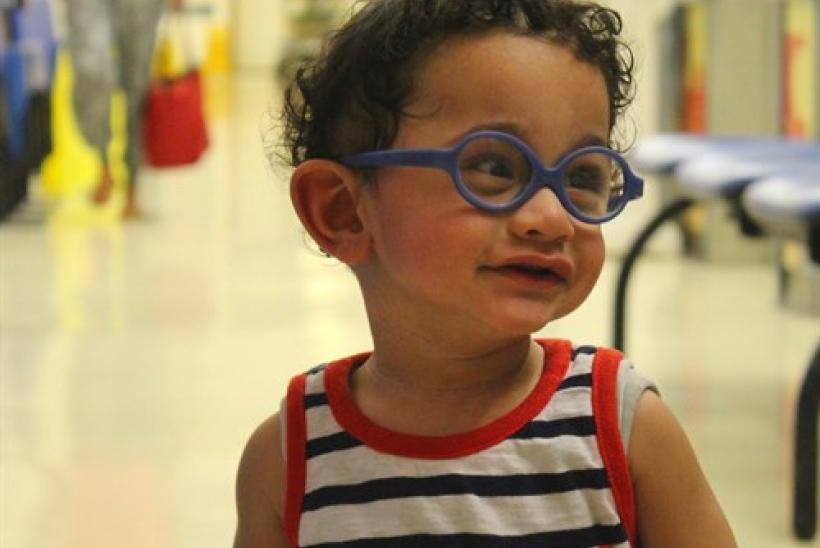Saving the sight of premature babies this World Sight Day
This World Sight Day Mr Chien Wong, Vitreoretinal Surgeon and consultant at Great Ormond Street Hospital for Children (GOSH) in London, discusses a new pioneering sight saving technique available at only two centres in the world.
Mr. Wong is an expert at treating retinal detachment in a condition called Retinopathy of Prematurity (ROP), a condition which can cause blindness. “For some premature babies the blood vessels in their eyes do not fully develop in the womb and once they are delivered, the blood vessel development goes a bit haywire and can lead to abnormal, fragile blood vessels which can lead to retinal detachment and blindness if not treated.” Mr. Wong explains. ROP is the one of the most common causes for vision loss in childhood, and can lead to lifelong vision impairment and blindness.
The surgery to treat retinal detachment in ROP is complex and can be high risk, as any damage made to the baby’s retina is permanent. There is also only a small opportunity to fix the problem as Mr. Wong explains; “you only have a very narrow window of opportunity in a premature baby’s first few months of life to perform treatment to preserve enough sight in the eye to allow the child to grow up and potentially lead an independent or even normal life. The risk of retinal complications is high as well. However, with this new pioneering surgical technique, we are getting the best results for treating ROP in the country.”
The new surgical technique, called endoscopic vitrectomy, is allowing surgeons such as Mr. Wong to treat premature babies with less of a risk to the natural lens. “This technique is unique because it allows us to preserve the native lens of a baby while at the same time optimising the chance of fixing the retina, which is very important to give the child the best possible long term vision. Retinal detachment operations are very complex and any mistake can lead to irreversible blindness; traditionally to reduce the risk of retinal complications in surgery you would have to sacrifice the natural lens, so even if the operation is successful, the potential for doing well visually in the future would be impacted. However, with this new technique we are able to preserve the native lens, which gives the child the best single opportunity to optimise their visual potential for the rest of the child’s life, and many of the children of this generation could be living to a hundred years old!” Mr. Wong brought the technique to the UK and has been able to develop and enhance the technique at GOSH in order to optimise the outcomes of the procedure. GOSH is one of only two centres in the world that can provide this technique for premature babies.
“It is important that if your child is suffering from this condition to get treatment right away.” Mr. Wong stresses. “Although it may seem that the surgery is high risk, without treatment many babies will become blind for life.”

